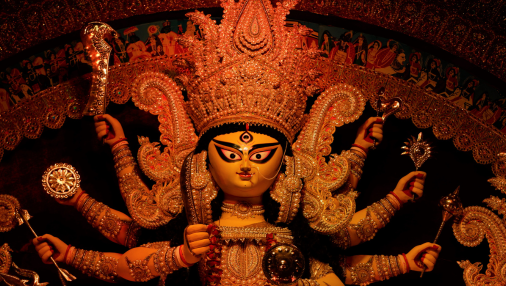Navratri is one of the most celebrated Hindu festivals, dedicated to the worship of Goddess Durga and her nine forms. Observed twice a year – during Chaitra (March-April) and Sharad (September-October) – Navratri is a time of devotion, discipline, and spiritual awakening. A significant aspect of this festival is fasting. But why do devotees fast during Navratri? The answer lies in the combination of spiritual, cultural, and scientific reasons.
Spiritual Significance of Navratri Fasting
- Detoxification of Mind and Soul: Fasting helps devotees focus less on worldly desires and more on prayers, meditation, and connecting with the divine.
- Strengthening Willpower: Controlling food habits develops patience and discipline, which are key to spiritual progress.
- Offering Devotion: Fasting is a symbolic offering to Goddess Durga, showing respect and surrender to her divine power.
Mythological and Cultural Reasons
- Nine Days for Nine Goddesses: Each day of Navratri is devoted to one form of Goddess Durga, and fasting is a way to honor her.
- Victory of Good over Evil: The fast reminds devotees of the nine-day battle of Goddess Durga against Mahishasura, symbolizing the triumph of dharma over adharma.
- Cultural Unity: Fasting traditions vary across India but unite people in devotion – from fruit-based fasts to special Navratri dishes like sabudana khichdi and kuttu ki puri.
Scientific and Health Benefits
Navratri fasting is timed with seasonal changes, making it scientifically beneficial:
- Body Detoxification: Eating light foods like fruits, nuts, and milk helps cleanse the body and improve digestion.
- Boosting Immunity: Seasonal fruits and sattvic food eaten during fasting strengthen immunity during weather transitions.
- Promoting Sattvic Lifestyle: Avoiding onion, garlic, alcohol, and meat purifies both body and mind.
- Intermittent Fasting Benefits: Modern science confirms that controlled eating patterns improve metabolism, regulate sugar levels, and promote overall health.
Psychological Benefits
- Mental Clarity: With less energy spent on digestion, the mind becomes sharper and more focused on prayers.
- Discipline: Following strict food rules cultivates discipline that extends beyond the festival.
- Detachment from Materialism: Fasting breaks unhealthy food habits and teaches the value of self-control.
Modern Relevance of Navratri Fasting
In today’s fast-paced world, fasting remains significant. It helps people reset unhealthy eating habits, reconnect with culture, and find spiritual peace. Families gather, cook traditional meals, and share devotion, making fasting not only personal but also a collective practice of unity and heritage.
Conclusion
Fasting during Navratri is much more than a religious ritual – it is a holistic practice that purifies the body, strengthens the mind, and elevates the soul. By following the tradition, devotees honor Goddess Durga, detoxify their system, and embrace a disciplined lifestyle. It is a reminder that true strength lies in self-control, devotion, and the pursuit of righteousness. As we fast, we not only celebrate the festival but also gain divine blessings, health, and inner peace.

